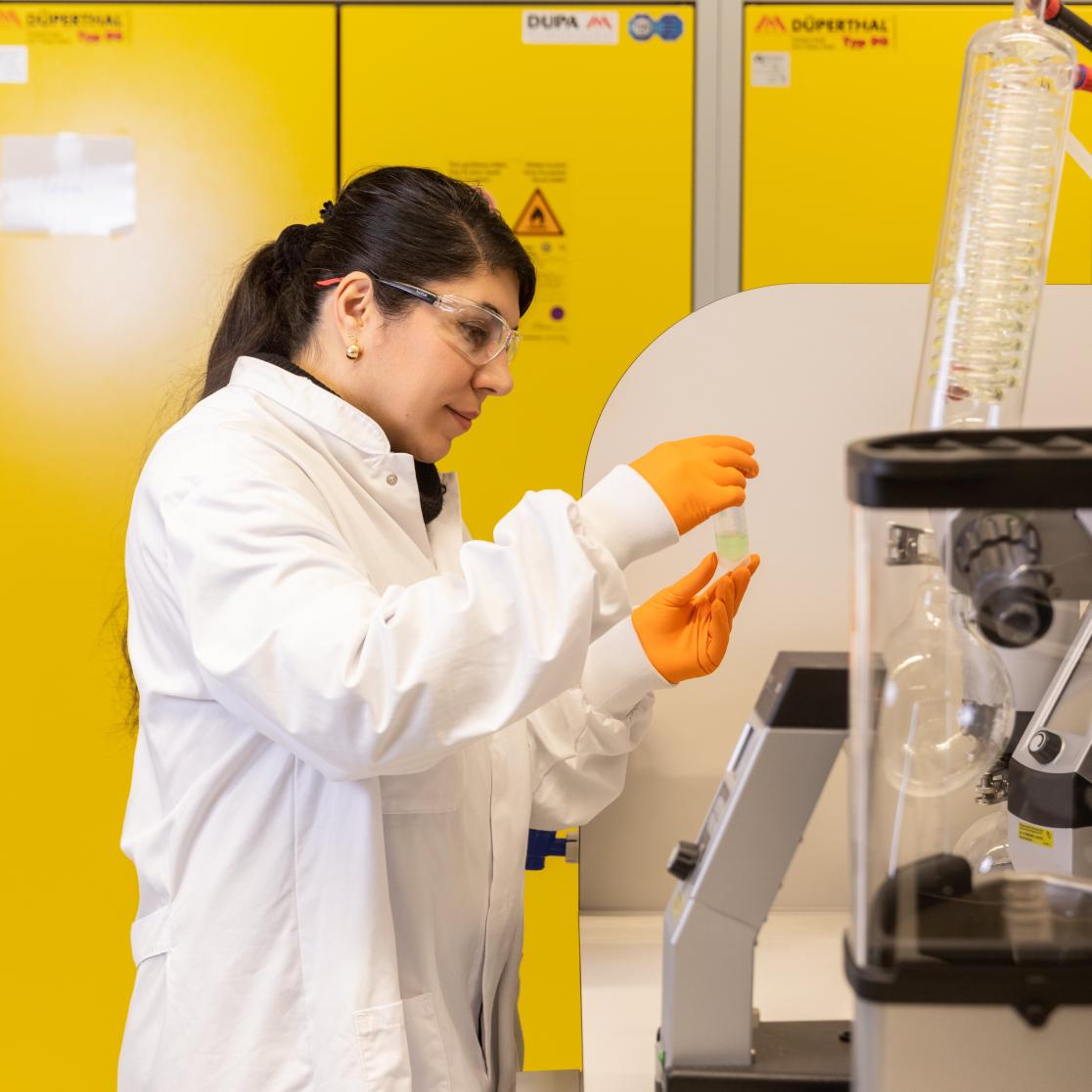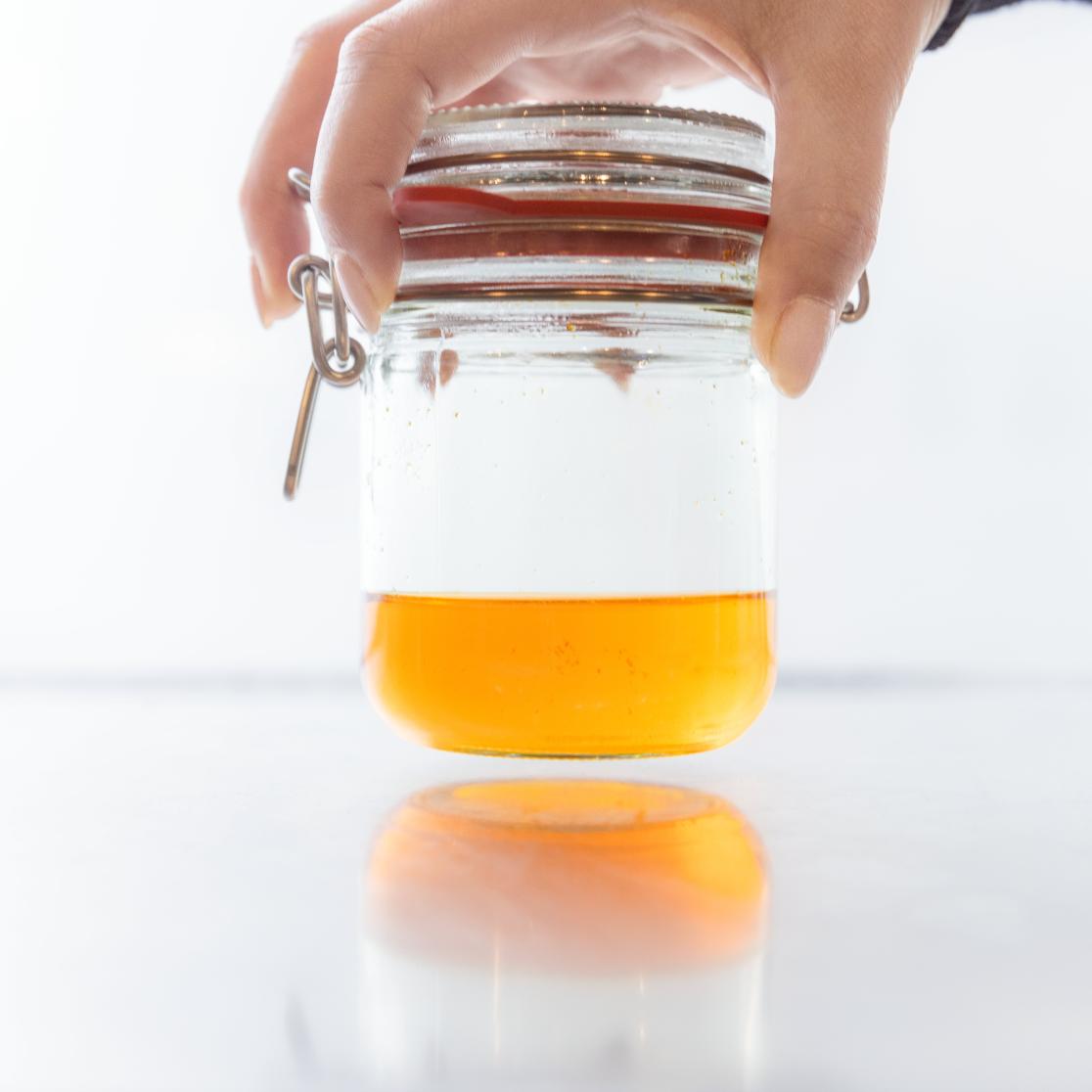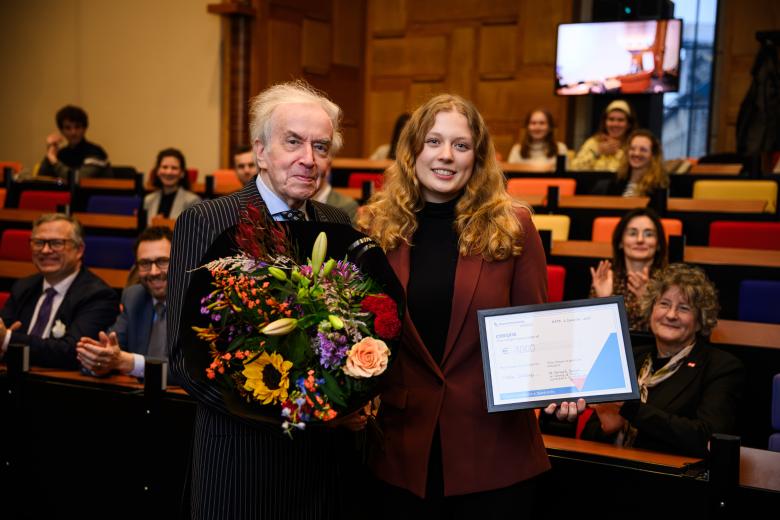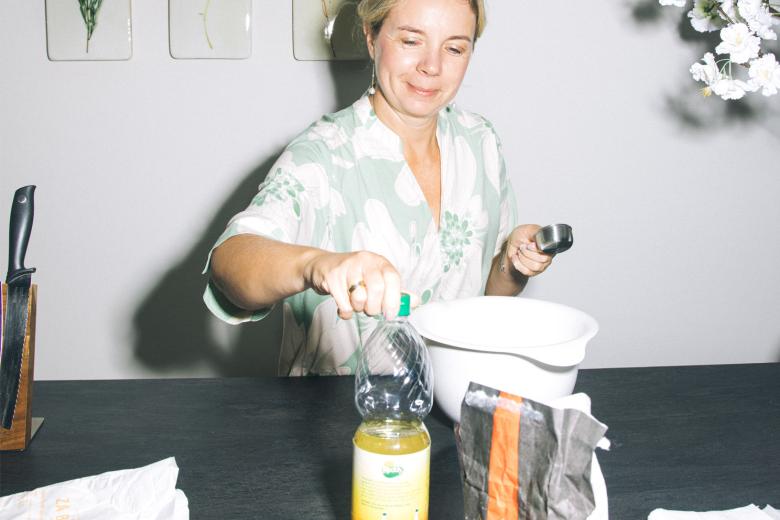A night in Tehran: rose water, saffron and pistachio
Niloofar Tahmasebi Birgani, assistant professor at the MERLN research institute, was born in southern Iran. It was only when she moved to the Netherlands in 2010 for her PhD research that she began cooking for herself. Instead of recipes, she uses intuition and memory to bring her mother’s and grandmother’s dishes to life in her own kitchen. Cooking gives her peace and brings her back to her native country, from fragrant Iranian stews to made-up cakes with the flavours of Tehran.
Niloofar Tahmasebi Birgani was born during a troubled period: the Iran–Iraq War. Her childhood in Khoozestan, close to the Iraq border, was one of endurance and privation, but also warmth and family traditions. She is the middle of three girls and has only vague memories of the war, whereas her older sister vividly recalls the bombings and bomb shelters. Simplicity was the keyword. They may have had few toys, but they had a close family bond and enough love for a happy childhood. Her father—a devoted maths teacher who taught her that education is not just a job, but a calling—remains an inspiration. It was from him that Tahmasebi Birgani inherited her passion for mathematics. “He still apps me maths problems to solve,” she says, smiling.
She describes herself as an introvert who buried herself in her books. “My sisters went out a lot more than I did. I loved being on my own, in my own world. I still do, actually. And I had friends who, like me, loved science and books and really wanted to learn.” At the age of 18, she moved to Tehran to study. Her parents followed her to the capital shortly thereafter. On her father’s advice, she chose biomedical engineering: it offered better career prospects than her first love—maths—and meant she could work with numbers and help people at the same time. She developed into a gifted, ambitious student.
An important decision
During her studies, Tahmasebi Birgani became passionate about science and decided to pursue a PhD. When she graduated top of her class, her family offered to contribute to a car as a gift. She asked to use the money to attend an international conference in Switzerland instead.
“My parents were surprised, but they supported me. The abstract I submitted was accepted and that’s how I travelled abroad for the first time.” It was in Switzerland that she met Professor Clemens van Blitterswijk, whose presentation made a lasting impression. She decided to look for a PhD position in the Netherlands, and eventually found one at the University of Twente with Pamela Habibović, who was part of Van Blitterswijk’s group. The move to the Netherlands was an emotional step, especially for her parents. “But they wanted me to follow my dreams,” she recalls.
Flavours filled with childhood memories
For Tahmasebi Birgani, flavours and smells form a direct connection to the past. For the interview, she baked a Persian pie with rose water, saffron and pistachio that evokes her childhood. “I first made it for a baking competition with colleagues. I had to give the cake a name, which became ‘Flavours of a night in Tehran.’ When I close my eyes, I see the dark sky, the busy, brightly lit streets of Tehran and my sisters and friends, who I used to join in the city to eat ice cream with rose water, saffron and pistachio.”

Meals were important traditions during her childhood. Dinner in particular was a ritual that brought the family together. Her fondest food-related memory is of gatherings at her grandmother’s place. “Old houses in Iran are built around a courtyard garden surrounded by rooms and the kitchen. There’s always a wing available for family, and newlyweds often continue living there until they can afford a house of their own.”
Her uncles, aunts, nephews and nieces were present. The children played in the courtyard garden while the adults sat inside because of the heat. In the evening everyone came outside, a large tablecloth was placed on the ground and the roughly 30 people ate together. “In Iran, you eat on the ground. To this day, my parents prefer to eat on the floor, while we children would rather eat at the table.”
Rice was the main ingredient, paired with rich stews of meat, lentils or aubergine. Fresh herbs, pickles and yoghurt abound. “Everything is pickled, from cucumber and aubergine to kale. Vegetables were only available in season, so they had to be pickled to make them last longer. Luckily, there’s a Turkish shop in Maastricht that sells delicious pickles.”
Cooking has become one of her favourite pastimes, something she only discovered when she moved to the Netherlands. In Iran, her mother was always in the kitchen, but here she had to fend for herself. “I also see cooking as a chemical process. The right proportions, experimenting with tastes and smells—it’s just like chemistry. I work mainly from memory: my mother’s and grandmother’s culinary skills are stored in there somewhere. I rarely use recipes.”
A life in the Netherlands
Tahmasebi Birgani has built a life in the Netherlands after moving here more than 13 years ago. “I’ve reconciled myself to the fact that I no longer live there. Simple dishes and certain smells take me back to my childhood; that’s enough for me.” While she misses her family, she is grateful for the opportunities she has been given.
“It’s a privilege to live here. It’s safe and comfortable. I had a wonderful childhood in Iran with many good memories, but I’ve also developed those feelings about the Netherlands. This is where I lived on my own for the first time, found my first job and met the love of my life. I now have a second family of friends and colleagues here. If I were to go back, I’d be homesick for the Netherlands.”
Text Annelotte Huiskes
Photography Philip Driessen

Also read
-
Maastricht Consulates Prize on EU Law 2025 Awarded
On 2 December, the Maastricht Consulates Prize on EU Law 2025 was awarded at the Faculty of Law of Maastricht University to Merle Sandhop.
-
“Food is for sharing”
“As a little girl, I loved food. After mealtimes I was allowed to go outside and play. But before long, my mother would find me at the neighbours’, being fed all over again.” Pamela Habibović , born in Tuzla and raised in Srebrenica, talks about the importance of food in Bosnian culture. “
-
A new wave of talent emerges from the School of Business and Economics
On Sunday, November 30, 2025, the Maastricht University School of Business and Economics (SBE) proudly celebrated the achievements of over 1,461 graduates from both bachelor’s and master’s programs. The festive ceremony took place at the MECC Maastricht and marked a significant milestone for the SBE